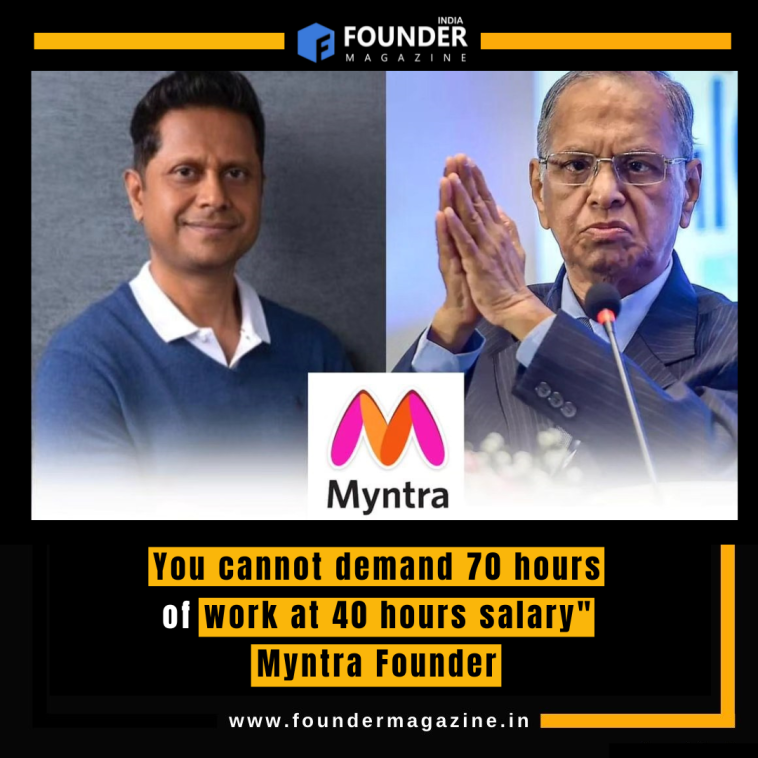In the ever-evolving landscape of work culture and employee expectations, the debate surrounding optimal work hours and fair compensation has taken center stage. The founder of Myntra, one of India’s leading e-commerce platforms, has weighed in on this matter, emphasizing the importance of aligning work hours with just compensation.
In a recent statement, the Myntra founder addressed the concept of demanding a 70-hour work week while offering compensation based on a standard 40-hour salary. This perspective underscores the need for a nuanced and equitable approach to workload and remuneration.
Work-life balance has become a key consideration for employees across industries, and the expectations of the modern workforce are evolving. The founder’s statement raises crucial questions about the sustainability and fairness of demanding extended work hours without commensurate financial acknowledgment.
The argument against demanding 70 hours of work at a 40-hour salary is multifaceted. Firstly, it challenges the traditional notion of the “time equals money” paradigm. The modern understanding of productivity emphasizes outcomes and results rather than mere presence or time spent at work. Demanding excessive hours without adjusting compensation may lead to burnout, diminished productivity, and overall dissatisfaction among employees.
Furthermore, the founder’s statement touches upon the ethical aspect of employment practices. Fairness and transparency are integral to maintaining a healthy employer-employee relationship. Expecting employees to put in significantly more hours without an appropriate increase in compensation may be perceived as exploitative and counterproductive in the long run.
In a rapidly changing business landscape, where innovation and creativity are highly valued, the quality of work often supersedes the quantity of hours spent on tasks. The founder’s perspective aligns with the growing acknowledgment that flexible work arrangements, autonomy, and a focus on results contribute to a more engaged and motivated workforce.
It’s essential to consider the impact of such statements on organizational culture and employee morale. Companies that prioritize employee well-being and recognize the importance of a balanced work-life equation tend to foster loyalty and higher levels of job satisfaction.
As businesses adapt to the evolving needs of the workforce, conversations around fair compensation and reasonable work hours are gaining prominence. The Myntra founder’s stance on not demanding 70 hours of work at a 40-hour salary reflects a broader dialogue within the business community about redefining traditional work norms.
In conclusion, the Myntra founder’s statement prompts a critical examination of the relationship between work hours and compensation. Striking a balance that acknowledges the changing dynamics of work while respecting the well-being and expectations of employees is crucial for building a sustainable and thriving workplace culture in the modern era.


